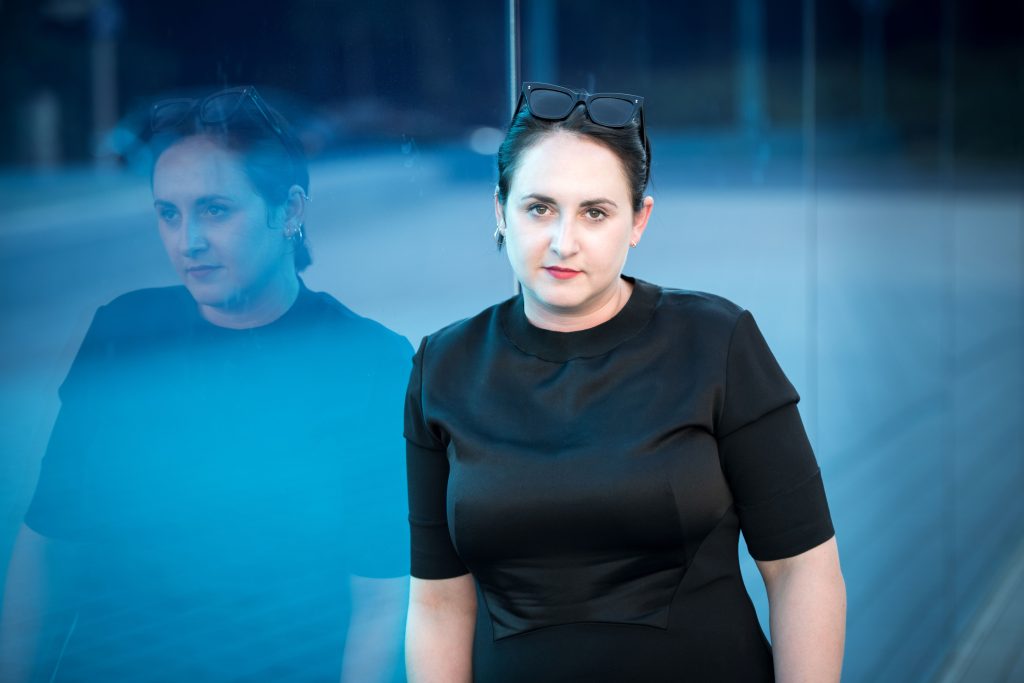
On Sunday, 26 October 26 at 3 pm, the Reading Room of the Contemporary Art Centre (CAC) will host a conversation with Georgian-born, Germany-based writer Nino Haratischwili, on creative protest, the role of cultural scenes in democratic movements, possibilities of transnational solidarity, and the relationship between poetic and political power.
The event is organised in the context of the CAC and Goethe-Institut Lithuania exhibition ‘Bells and Cannons: Contemporary Art in the Face of Militarisation’, and coincides with ongoing protests by Lithuania’s cultural community against the government’s decision to assign the Ministry of Culture to the political party Nemuno Aušra. The conversation will be moderated by Vytis Jurkonis, political scientist and lecturer at the Institute of International Relations and Political Science of Vilnius University.
The conversation will be held in English. Admission is free.
ABOUT NINO HARATISCHWILI
Nino Haratischwili is an internationally acclaimed author of bestselling novels, one of the most prominent voices in contemporary German literature, and one of the most active political essayists in Germany.
Her writing and public interventions address the current climate of political aggression, social polarisation, and the palpable threat of war. For many years, Haratischwili has spoken out against the growing danger to freedom posed by Russian imperialism. What happened in Ukraine must not be repeated – this fear has become a daily reality in Georgia. These concerns are central to her latest book Europa, wach auf! (Europe, Wake Up!) and her emotionally charged, personal, provocative, and politically engaged speeches, written in the poetic and powerful language that defines her distinctive style.
Her novels The Eighth Life (For Brilka) and The Lack of Light have been published in Lithuanian, translated by Vilija Gerulaitienė and released by Alma littera.
ABOUT THE CULTURAL PROTESTS IN LITHUANIA
‘On September 22, news reached Lithuania’s cultural community that, during the process of reforming the Government, the Lithuanian Social Democratic Party (LSDP) and the Nemuno Aušra party had swapped the Ministries of Culture and Energy. This sparked strong dissatisfaction within the cultural community, as the Ministry of Culture was handed over to the Nemuno Aušra party, which is associated with radical and populist forces. The following day, the cultural community convened its first assembly and launched a petition: ‘Against the Political Bartering of the Ministry of Culture’. On September 25, a protest of the cultural community took place outside the Presidential Palace, followed by a second assembly of the cultural community and a warning strike scheduled for October 5.’
From an interview by Edvardas Šumila with members of the ‘Cultural Protest’ initiative group – Gintautė Žemaitytė, Head of the Sapieha Palace, and Arūnas Gelūnas, Director of the Lithuanian National Museum of Art – published on 2 October 2025 in the cultural portal Echo Gone Wrong.
The Lithuanian cultural protests continue to catalyse new forms of resistance.